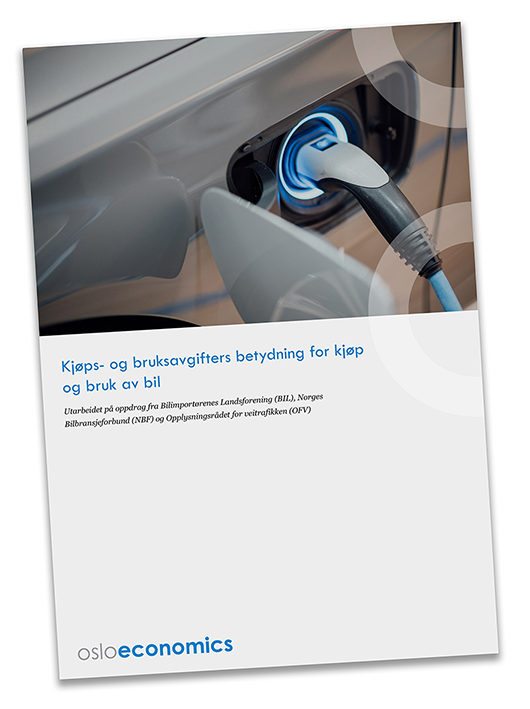Targeted investment over several years, with VAT exemptions and other incentives for the purchase of electric cars, has placed Norway at the top of the world in the transition to zero-emission cars. Electric cars now make up 83 per cent of all first-time registered new passenger cars, and the goal of all new car sales to be emission-free by 2025 may be within reach.
– History clearly shows that tax changes have a major impact on the population’s choice and purchase of new cars. Now we have to learn from experience, and not stop the green shift on the run-up side, says director Erik Andresen at BIL.
Price influences Norwegians’ purchase decisions, and increased electric car taxes will delay the replacement of the car fleet. Electrification of the passenger car fleet is a low-hanging fruit compared to corresponding emission cuts in other parts of the sector, so that increased electric car taxes make it more difficult to reach the climate targets for 2030, says Eivind Søraa, Senior Economist at Oslo Economics.

The report “The importance of purchase and use taxes for the purchase and use of a car” which was presented today, which was prepared on behalf of the National Association of Vehicle Importers (BIL), the Norwegian Automobile Industry Association (NBF) and the Road Information Council (OFV). This clearly shows that increased taxes on the purchase of new cars reduce the replacement of the car fleet. This will again make it more difficult to achieve the climate goals.
The report was initiated in order to gain deeper knowledge of car owners’ behavior in the event of tax changes. Both purchase and use.
It is of course important knowledge for the industry, but also for the authorities. It provides knowledge about future revenue because tax changes lead to behavioral changes among consumers.
But above all, the report provides knowledge about the role of taxes in the work to renew the car fleet at the pace that is necessary for us to meet the climate targets – and the emission cuts the transport sector must make. We all depend on the transition to zero emissions not being delayed.
It has already become more expensive to both buy and use electric cars. 670,000 cars are now electric. This means that approx. 2.2 million cars still run on petrol and diesel. Many of them with high emissions, which are not good for either the climate or the environment.
BIL believes that the conclusions in the report provide completely clear answers, and sometimes dramatic answers.
Full VAT on electric cars can reduce sales by 20-30%, one-off tax results in a further 10-20% reduction. A total of between 30 and 50% reduction! Then we will be light years away from any climate target.
In addition, there is a reduction in any road use tax, increased tolls, company car tax, etc. The consequences of tax increases are significantly higher CO2 emissions in 2030 from the car fleet. But also right up to 2050 – because a new car is on the road for almost 20 years.
Summary/consequences:
Core findings: • Increased taxes can lead to an older car fleet as fewer people choose to buy new electric cars.
• The effect of increased fees will manifest itself over time, given the size of the car fleet.
• Substitution effects, i.e. how consumers choose alternatives to new electric cars, are covered to a limited extent in the report.
• Potential alternatives include new fossil-fuel cars, such as hybrid, diesel or petrol cars, and used cars.
Taxes and National Transport Plan:• Norway has set itself the goal that all new cars must be zero-emission vehicles by 2025. This goal was continued for the period 2022-2033.
• The fee reductions for zero-emission vehicles have contributed to an electric car share of 79% in 2022.
• The concern is that reversing these reliefs could slow down the transition to zero-emission vehicles.
Distortion effects:• There is a risk that consumers will turn to other powertrains if the taxes on electric cars are increased. The TØI report (Fridstrøm & Østli, 2021) provides insight into how consumers can choose between different powertrains.
• Increased taxes can lead to reduced conversion to zero-emission vehicles and higher emissions from the car fleet over time.
Taxes play a critical role in the decision to buy and use electric cars in Norway. Although the ambition is to transition to a completely zero-emission car fleet, increased taxes can hinder this transition by making it less attractive for consumers to buy new electric cars. It is important to assess the toll policy’s long-term effects on the environment, traffic safety and the age composition of the car fleet. Politicians and other government officials have really got something to think about here! We hope we are all aware of our responsibility.
download the report here
